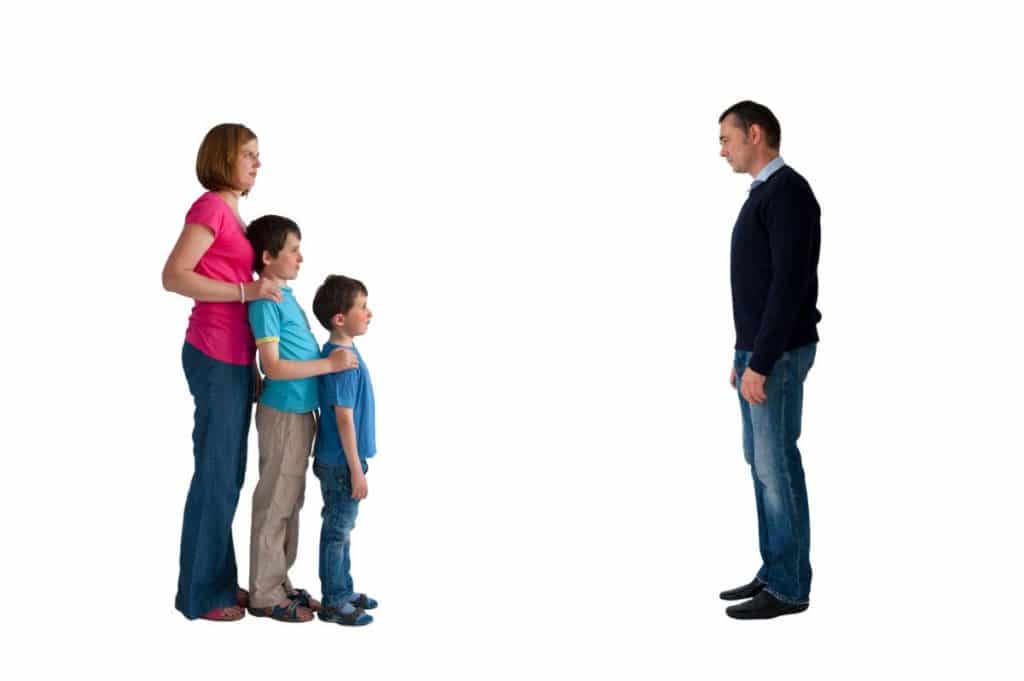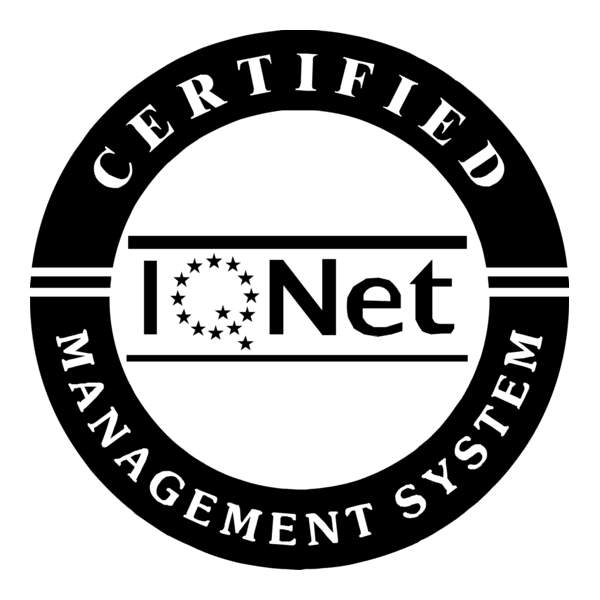Divorce Attorney
Contact refusal or parental alienation?
Why does this happen and what can be done?
What is parental alienation and how is it treated?
Divorce proceedings have far-reaching effects on the family unit and the children in particular.
In cases where the divorce procedure is done in a considered and settled manner and is based on full agreements regarding the relationship of both parents with their children, the children are expected to experience the divorce ideally. On the other hand, there are cases where great anger and enmity between the couple seeps into their children, to the point of alienation on the part of the children in relation to one of the parents.

By Igal Mor, Adv. & Notary
Accuracy in Legal Advice. Excellence in legal support.



"The loss of such a significant figure for the child, mother, or father forces the alienated (whether minors or adults) to live in the shadow of a chronic feeling of abandonment and bereavement, even if it is unconscious."
Dr. Childers
Parental Alienation - Definition
The concept of parental alienation refers to a situation where a child is alienated from one of his parents. Alienation from the estranged parent can take several forms and is derived from the soil on which it grows.
The ranges of alienation are wide and range from the child’s anger towards his parent to the situation where the parent is perceived by the child as an offensive factor (character assassination) that should be avoided from any contact with him, a situation that leads the child to refuse contact with his parent. Sometimes refusal of contact is legitimate (then it is not parental alienation, but a legitimate refusal of contact on the part of the child) and many times there is difficulty for professionals to diagnose whether it is parental alienation or legitimate refusal of contact.
Development of Parental Alienation
The common ground for the development of parental alienation is the ground of divorce. Thus, in the case where the couple divorces in the background of a deep rift in their relationship, the shared children constitute another ground for quarreling between the couple, until a situation arises in which the children are forced to take sides with one of their parents and, by way of that, become alienated from the other parent.
As mentioned, divorce battles usually are very emotionally charged, which sometimes causes the divorcing couple, or one of them, to act against their own interest or that of their child.
One of the topics of the struggle is the question of the arrangements for staying with the children and the struggle of who is the central/caring/main parent. In most divorce cases, this issue is a charged one.
Many times one of the parties accumulates a lot of anger towards the other and finds it difficult to separate this anger from the best interests of the child (which would be maintaining contact with the other parent).
This anger is expressed in accusations toward the other parent of harming the child, as well as claims of inability to be a good parent (in some cases these manifest as false accusations of sexual abuse or neglect on the part of one of the parents).
For more information on parental alienation and the legal ways to deal with parental alienation, you can contact us and schedule a legal consultation.
Development of Parental Alienation in Case of Divorce
The younger a child is, the more unable he is to understand the situation that accompanies the divorce proceedings between his parents. Additionally, the younger the child, the less able he is to understand the basis for the choices that accompany his parents’ separate lives.
For this reason, a child in such a situation is easily influenced by the alienating parent, to the point of giving complete trust to claims that are not realistic.
There is a distinction between 3 types of alienating parents:
- The “naive alienator”: outwardly indifferent and passive in the context of the children’s relationship with the other parent, in practice sometimes said parent will contribute accusations and justifications or create an atmosphere of support for the child alienating the other parent.
- The Active Alienator: reinforces his anger and fear through actions to alienate the other parent. with a full understanding of his actions.
- The Obsessive Alienator wants to hurt the other parent and destroy the children’s relationship with them.
Examples of a Child's Behavior in Parental Alienation:
- Reduces the alienated parent (the target) – in perceptions, harmful behavior, and aggression.
- The aforementioned alienation is usually toward the parent, his extended family, and his friends.
- Absolutes – the preferred parent will be perceived and described as only good and the alienated parent as only bad.
- Will present unclear reasons for severing the relationship (weak, absurd claims).
- There are no feelings of remorse for the pain caused to the estranged parent, there is no ability to empathize or care.
- The child receives unlimited support from the alienating parent.
- The child uses words and language that are not typical for him and his age.
Refusal of contact on the part of the child
The law in Israel, insofar as it is a divorce proceeding that is not derived from violence on the part of one of the parents towards the other parent/children, recognizes that every parent in a divorce proceeding has the right to stay with his child and take part in his upbringing.
Ideally, as part of a divorce proceeding, the determination regarding the duration of each parent’s stay with their children will be made by the parties, however, in the absence of communication and the ability of the parties to reach agreements on this matter, it is inevitable that this will be decided through a family court or a tribunal.
To the extent that you are expected to have a legal proceeding regarding residence arrangements with your child, it is recommended to be accompanied by a lawyer specializing in family law.
Be very careful and pay attention, A claim of parental alienation or refusal of contact by the children is not always true!
For example, the Honorable Judge Liat Dahan Hayon states in 30406-07-16:
“Therefore, the court was convinced that the lack of contact between the father and the daughters is not rooted in parental alienation on the mother’s side. Indeed, at the beginning of the procedure, as the father claimed, the mother did not cooperate with the individuals responsible for treatment. But later she cooperated with them and acted in accordance with the decisions of the court. On the other hand, in relation to the father, contrary to his claims that he did everything in his power to renew the relationship, the court was impressed by the relevant professionals’ impressions, there isn’t much ground for his claims. The father showed no patience towards his daughters and towards the therapeutic procedure; he utilized the proceedings for the purpose of managing the conflict against the mother, furthermore, the father’s conduct towards the minors is what created a deep hurt in them, a feeling of frustration, disappointment, instability, and an unbearably difficult understanding that the father had given up on them, that is why the process of renewing the relationship with the children had failed. In these circumstances, it was not parental alienation”.
Parental Alienation and Residence arrangements.
There are different types of residence arrangements, namely the division of the child’s stay between his parents during the week – when the child stays with one of the parents exclusively for that duration. The extreme case of parental alienation is the refusal of contact on the part of the child. therefore, the child refuses even to meet with one of the parents as part of the residence arrangements established between the parents.
For more information on the issue of refusal of contact, it is recommended to contact a divorce lawyer.
Parental alienation is a behavior that must be denounced and dealt with urgently since the time factor is very important:
Attached to the survey was a report from the contact center detailing the meetings that were supposed to take place and the events that happened, and in summary, it was stated as follows:
“In summary, so far there have been five attempts of meetings at a contact center, it seems that the case is the “Parental Alienation Syndrome”. So-and-so’s father arrives ahead of time, aiming for the meeting, excited, bringing gifts and food. A certain person comes with her children physically but emotionally it seems that she does not let them go. It started with her refusing to sign the contact center agreement, then with her not answering my phone and taking a long time to get hold of her. The second thing is that she comes to the contact center but does not let them in under the pretext that I did not agree and I informed her that I do not agree that she should be at the contact center during the meetings, as she previously requested. I told her the meetings are with the father and I know it’s not going to be easy due to the long time that has passed since they met their father, about three years. She did not like it and she does not cooperate in bringing her children to meet their father.
…
Later on in the review, the lawyer who accompanied the father summarized her intervention and stated: “In conclusion, from the aforementioned information, a difficult and painful picture emerges of the impossible relationship between a benevolent father and his sons against the background of the syndrome of “parental alienation”…
… There is no doubt that the minor needs his father and precisely at this point the father decided to stop the process.
The description that the therapists describe regarding the reaction of the minors when the father informed them of his separation from them, is heartbreaking:Both were observed as attentive and surprised, the father expressed his love for them, said goodbye, and left the Zoom call. Following the father’s departure, silence prevailed on the screen. A moment later the children left the place and entered their rooms“. Today it seems that there is no chance of restoring the relationship between the father and the minors, but we must not forget that the father contributed to closing the door on the therapeutic process. Precisely when the buds of change began, the father interrupted the process at once, even without preparing the minors.
This case, in which the mother for so many years had difficulty separating her anger and hurt towards her ex-husband and the needs of the minors, which led to the worsening of the disconnection until many therapeutic attempts failed, justifies a certain reduction in child support. The balance between the mother’s contribution to the created situation, the father’s contribution and the need to ensure that the basic needs of the minors are met leads to the conclusion that there is no room to abolish alimony but to reduce it to a certain and gradual extent. “
from the judgment
(Kyriot Family Court) 04-19-39793 by Honorable Judge Shiri Hayman
Strengthening the relationship between the parent and the child through a contact center
Refusal of contact is the result of deep persuasion on the part of one of the parents and incitement to avoid contact with the other parent, it is a psychological effect through one of the closest people to the child during his life – his parent, “mind engineering” – of a parent towards his child and against the estranged parent.
In order to deal with cases of refusal to contact or less serious cases of parental alienation, it is necessary to involve therapeutic and legal factors that can act as a counterweight to the inciting behavior of the other parent.
A contact center is a body operated by the welfare services in each city, where treatment is conducted to create a renewed connection. You can get more information about a contact center by consulting a divorce attorney.
Treatment of the distress of the estranged parent
A parent suffering from the phenomenon of parental alienation on the part of his child may find himself helpless in the face of his child’s baseless accusations against him. It is advisable to remember that the child who demonstrates signs of parental alienation does not do so on the basis of a considered and rational choice, therefore one should avoid placing blame on him. Alongside this, there may be cases of parental alienation that are not based on incitement by one of the parents, cases of this nature also require intervention and treatment.
In order to handle parental alienation in an optimal way, one must choose to be accompanied by an experienced divorce lawyer who is well versed in handling this delicate situation, including through the creation of a treatment procedure through the welfare agencies/contact center.
The behavior of an alienating parent and parental alienation must be condemned!
Treatment of parental alienation - all parties benefit
The treatment of parental alienation in a professional manner, including through a contact center and psychologists specializing in this field, is a gain for the parent who gains contact with his child and for the child who needs a benevolent relationship with both of his parents.
In Conclusion
Both children and parents may suffer long-term effects as a result of parental alienation. In light of this, you should do everything in your power to avoid getting into a situation of parental alienation in advance, both as an estranged parent and, indeed, as an estranged parent.
It is important for parents experiencing parental alienation to remember that there is something they can do, they must seek the assistance of a professional in order to resolve the issue.
Are you experiencing parental alienation? The element of time is crucial, so do not delay. Get in touch with us today to schedule a no-obligation consultation.
Mor & Co. has extensive experience in the area of family law. Our practice focuses on complex family and divorce cases and we represent and litigate in courts on a daily basis.
As experienced attorneys providing legal assistance in complex divorce proceedings, we have the knowledge and expertise to handle parental alienation cases.
Due to our experience in legal handling of divorce cases combined with parental alienation, we are committed to doing our best to make our expertise available to our clients, while maintaining and being careful in all matters related to the legal process, and looking out for your interests.
Please feel free to contact us for legal advice (without obligation) regarding parental alienation/refusal of contact at 02-595-3322 or WhatsApp at 050-441-1343


